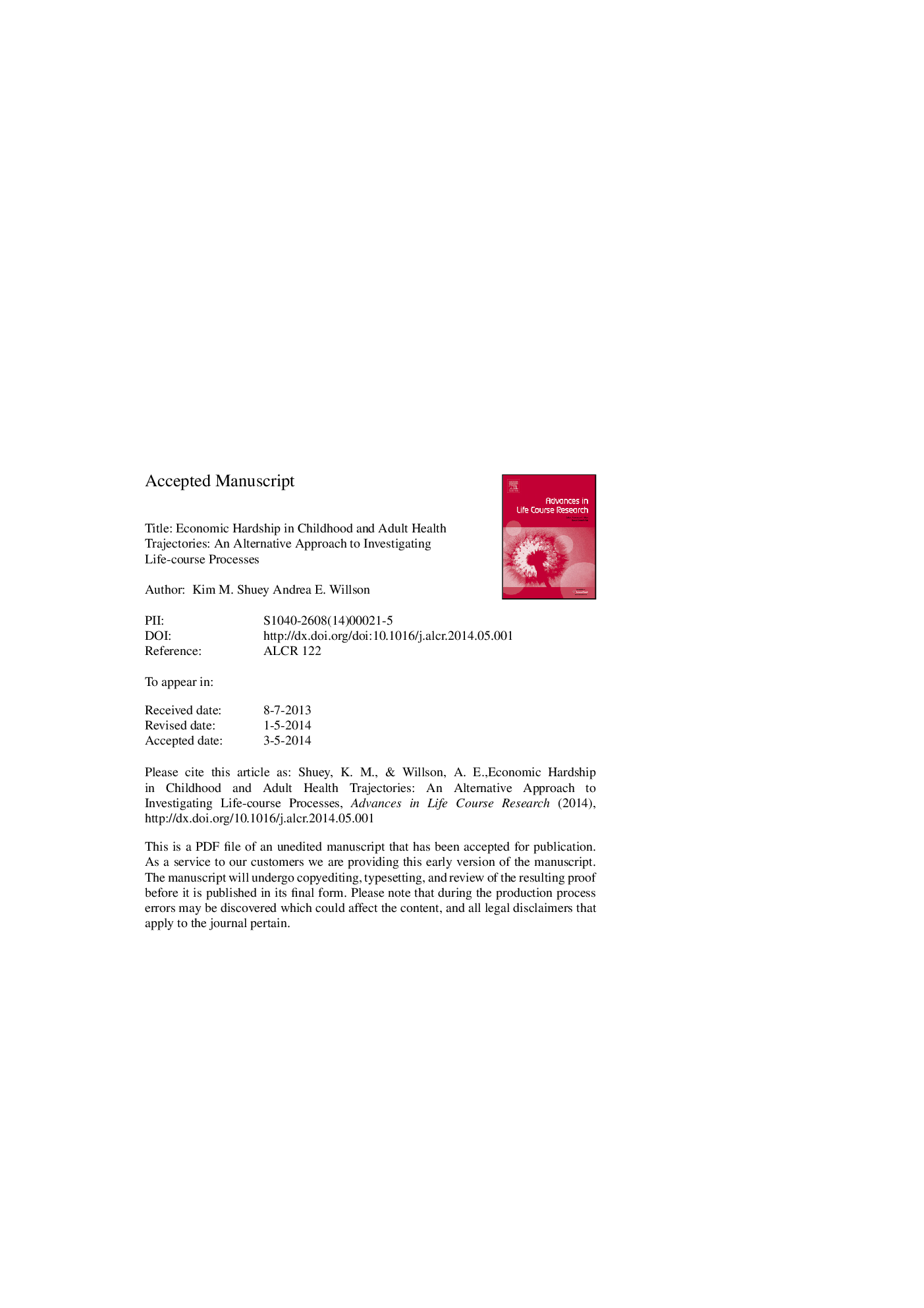| Article ID | Journal | Published Year | Pages | File Type |
|---|---|---|---|---|
| 6785013 | Advances in Life Course Research | 2014 | 43 Pages |
Abstract
In this study, we advance existing research on health as a life course process by conceptualizing and measuring both childhood disadvantage and health as dynamic processes in order to investigate the relationship between trajectories of early life socioeconomic conditions and trajectories of health in midlife. We utilize a trajectory-based analysis that takes a disaggregated, person-centered approach to understand dynamic trajectories of health as latent variables that reflect the timing, duration and change in health conditions experienced by respondents over a period of 10 years in midlife as a function of stability and change in exposure to economic hardship in early life. Results from repeated-measures latent class analysis of longitudinal data from the Panel Study of Income Dynamics indicate that economic hardship in childhood has long-term, negative consequences for health both among individuals beginning life and remaining in poverty as well as those moving into poverty. In contrast, adults with more advantaged early life experiences, or who moved out of poverty during the period of observation, were at a lower risk of experiencing health trajectories characterized by the early onset or increasing risk of disease. We argue that a person-centered, disaggregated approach to the study of the relationship between socioeconomic status and health across the life course holds potential for the study of health inequality and that a greater focus on trajectory-based analysis is needed.
Related Topics
Physical Sciences and Engineering
Mathematics
Statistics and Probability
Authors
Kim M. Shuey, Andrea E. Willson,
